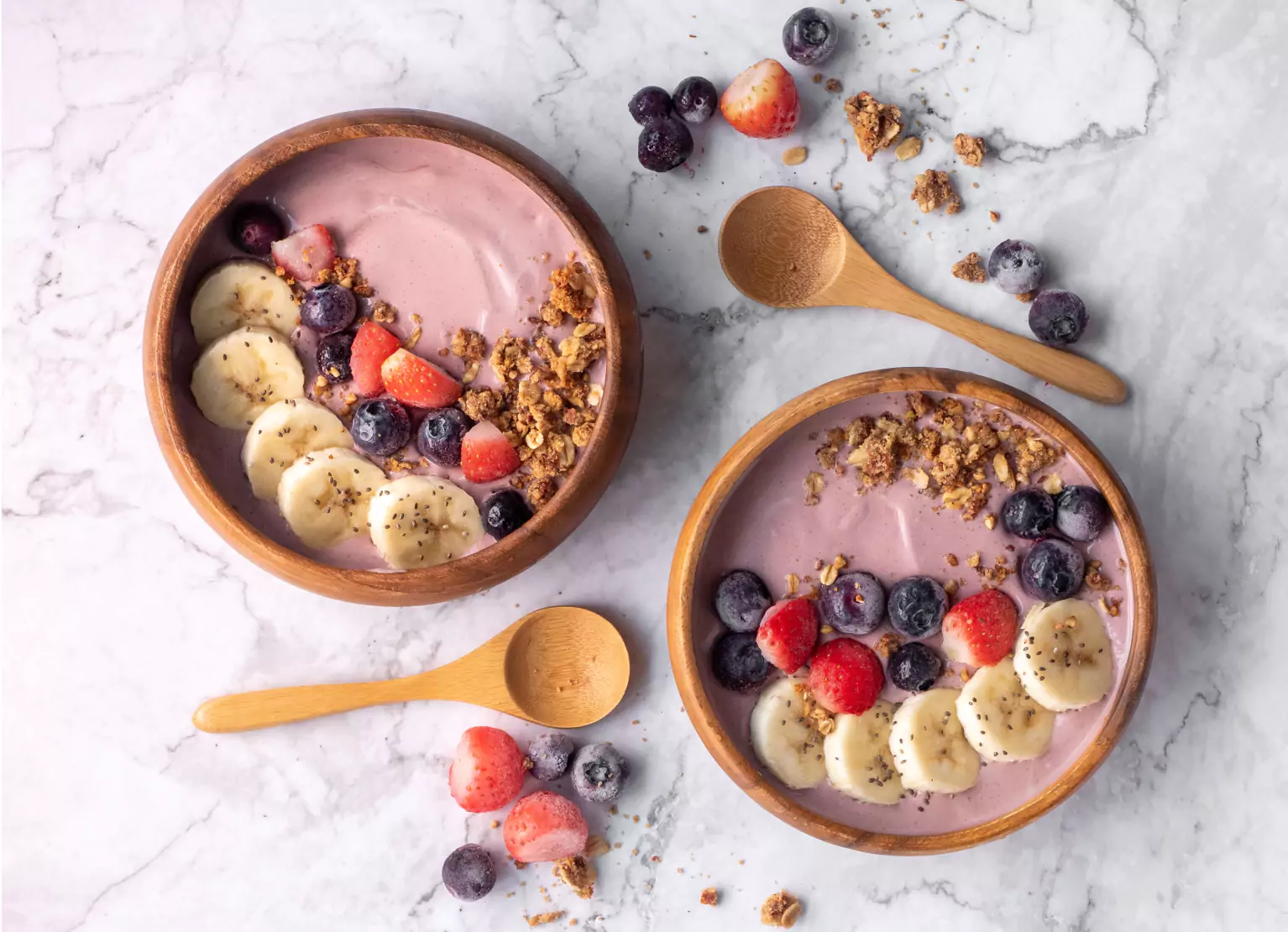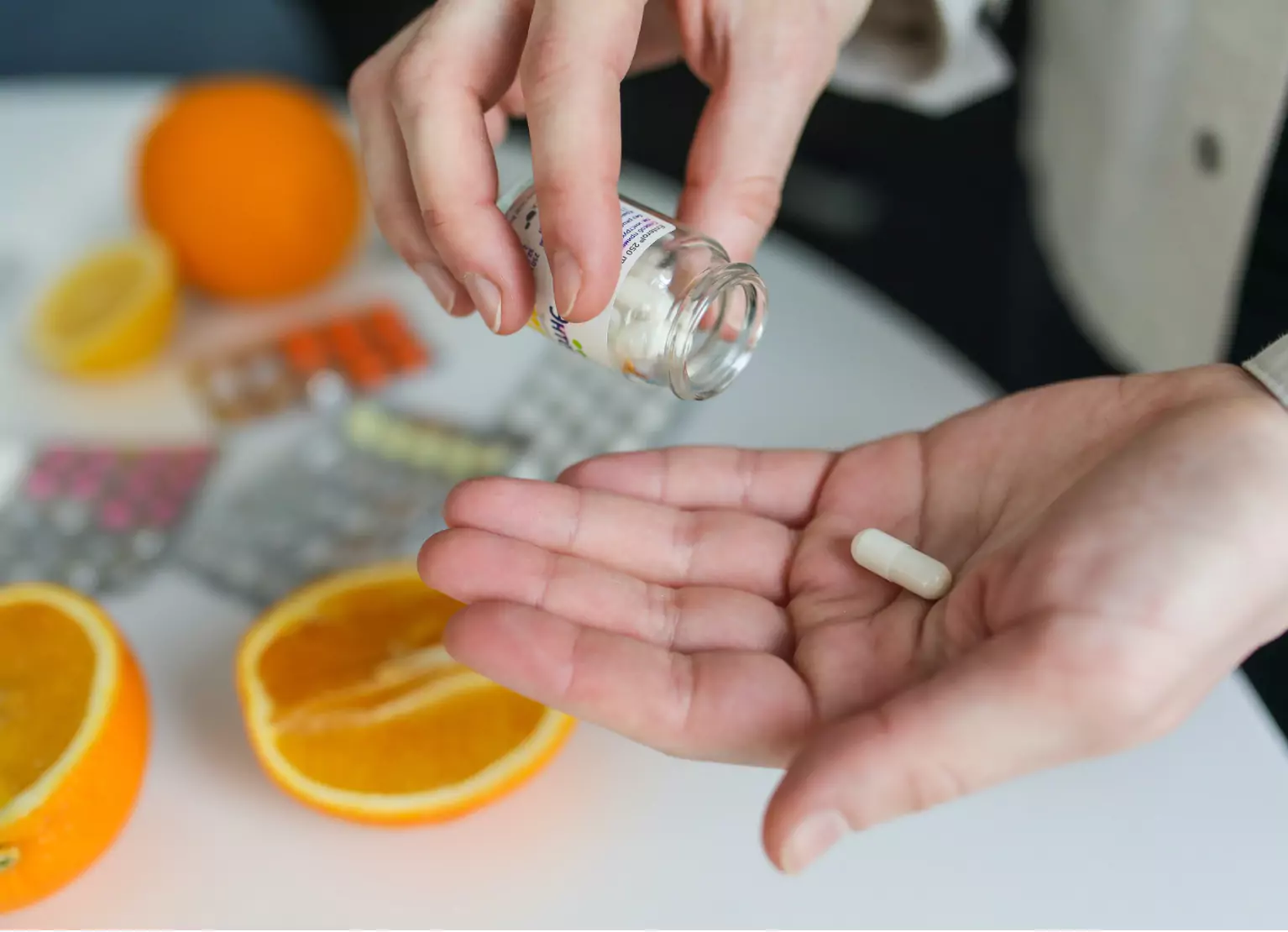The Best Diet to Increase Your Vitamin D Levels

Key Takeaways
Last week, we told you all about the sunshine vitamin—what it is, and how to know if you need more of it. So, you likely already know that it’s a fat-soluble vitamin with many health benefits.
Unfortunately, most people don't consume enough vitamin D in their diets. As the National Cancer Institute states, approximately 20 percent of the American population doesn’t have adequate vitamin D levels in their blood.
Sun exposure helps the body produce this vitamin, so it’s no surprise it’s called the sunshine vitamin. But can you also increase your intake of this essential vitamin through your diet? Yes and no.
While you shouldn’t depend wholly on your diet, certain foods have enough vitamin D content to boost your levels. However, vitamin D-rich foods won’t be enough for some people, and you may have to talk to your doctor about taking a vitamin D supplement.
Read on to learn more about vitamin D-rich foods and what you should include in your diet to make the most of this vitamin’s health benefits.
The Health Benefits of Vitamin D

As we mentioned last week, this nutrient plays an essential role in many aspects of your health. From healthy bones and a well-supported immune system to your mood, metabolism, and cognitive function, there are many reasons to make sure you’re getting enough of it.
The vitamin regulates calcium absorption and mineralization, reducing the risk of cancer and heart disease and reducing inflammation. Recent research has also suggested that vitamin D deficiency may have links to autoimmune disorders like Crohn's, Multiple Sclerosis, and Hashimoto's thyroiditis.
It’s generally found in two forms: ergocalciferol (vitamin D2) and cholecalciferol (vitamin D3). Additionally, research has shown that vitamin D can help prevent certain diseases and conditions, including:
- Osteoporosis
- Multiple Sclerosis
- Rickets (in Children)
- Cancer
- Osteomalacia
- Type 1 and Type 2 diabetes
- Flu and the Common Cold
- Heart Disease
- Graves Disease
- Tuberculosis
- Depression
- Crohn’s Disease
Because maintaining optimal levels of vitamin Dis so crucial to overall health, it’s important to ensure you get enough vitamin D every day.
The National Institutes of Health recommends that adults under 50 consume 600 IU (international units) of vitamin D per day. In comparison, older adults (over 70) should consume 800 IU of vitamin D per day.
A Note on Vitamin D Deficiency and Toxicity
Before we dive into the perfect diet for vitamin D, let’s take a minute to focus on vitamin D deficiency. Having low levels of vitamin D is different from a deficiency, which is a serious health condition that affects millions of people worldwide.
People with a vitamin D deficiency typically experience fatigue, muscle weakness, low mood, and joint stiffness. Some people don’t experience any symptoms at all.
Fortunately, several effective treatments can help with a vitamin D deficiency, like diet modification and supplementation. With early diagnosis and proper treatment, people can maintain healthy levels of this critical nutrient and prevent further complications.
On the flip side, getting too much isn’t good either. Vitamin D toxicity can cause nausea, vomiting, and weakness, lead to kidney damage and can be fatal in severe cases. As the study mentions, the upper limit is 4000 IU. Remember that toxicity is rare, so you should work with your doctor and find the supplementation amount that’s best for you.
Is Vitamin D From Sun Exposure Good Enough?

So, do you need more of this in your diet? Is what your body produces enough? Whether or not Vitamin D from the sun is enough for your body is a topic of much debate in the health and wellness community.
Some experts argue that regular exposure to sunlight is enough to keep you healthy, while others claim that this can only do so much to fulfill your body's needs. There are several factors to consider, including skin tone, weather conditions, geographic location, and sunscreen application.
While getting some sun is a good thing for various reasons, there are risks, including ultraviolet exposure, which can increase your risk of skin cancer. If you spend a lot of time in the sun, it’s best to practice sun safety like wearing sunscreen and spending enough time in the shade.
Ultimately, the best way to determine if vitamin D from sun exposure is sufficient for your body is through consultation with a medical professional. What we do know is that several nutrient-rich foods also have good vitamin D content, and if your body tolerates them, they can be an excellent addition to a healthy diet.
{{rich-text-cta-wl2="/style-guide"}}
Our Favorite Food Sources of Vitamin D
We know that you need an average of 400-600 IU of vitamin D per day, and while your body will usually get a lot of this from sun exposure, certain foods can also help boost the amount of vitamin D in your system.
If you’re looking to increase your vitamin D intake and don’t know where to start, consider working with a credentialed dietitian or nutritionist to see what works best for you. In the meantime, here are some great vitamin D-rich foods to consider adding to your diet.
Yogurt

Though you might not think of yogurt and dairy products as a natural source of vitamin D, some brands add it in during the manufacturing process.
These are known as fortified foods. It’s always a good idea to check the nutrition facts label to see how much vitamin D is in each serving.
Orange Juice
Most people know that orange juice is a good source of vitamin C, but did you know that it also contains vitamin D?
According to the USDA, a single cup of orange juice has about 15 percent of the recommended daily intake of Vitamin D, making it an easy way to get your daily dose of this vital nutrient.
Remember, it’s important to check the nutrition facts label here, too, since many store-bought orange juices may also contain added sugar. And of course, consider consuming the whole fruit over fruit juice whenever you can, and have your fruit juice with a balanced meal to encourage better blood glucose responses.
Eggs

Eggs, especially egg yolks, are a rich source of many different nutrients, including protein and essential vitamins and minerals.
And one of those beneficial nutrients is vitamin D. Eggs are a good source of this nutrient, with one large egg providing approximately 16 percent of the recommended daily intake.
Rainbow Trout
Rainbow trout is one of the most popular types of fish in North America, prized for its delicate, flaky flesh and mild flavor. This fish has a rich buttery flavor and contains high levels of essential nutrients such as protein, omega-3 fatty acids, and vitamin D.
In fact, according to the USDA, just one serving of rainbow trout contains almost all of the recommended daily value of vitamin D.
Sardines

Sardines are small, fatty fish that are a popular food source in many cultures. Although they are often consumed whole, bones and all, sardines can also be found boneless in canned form.
Sardines are one of the best sources of vitamin D, providing almost 30 percent of the recommended daily amount in just one serving. In addition to being a good source of vitamin D, sardines are also high in omega-3 fatty acids, which have numerous health benefits.
Other fatty fish like mackerel and herring are also good sources of vitamin D.
Mushrooms
There are thousands of different types of mushrooms, some used for culinary purposes for centuries. Mushrooms are one of the few plant-based sources of vitamin D.
You can enjoy them cooked or raw, and they make a delicious addition to salads, stir-fries, and other dishes. In addition, mushrooms are low in calories and fat, and they are a good source of fiber.
Something to note is that while they provide vitamin D2, they may not be as good as raising your vitamin D levels as a food source that contains vitamin D3.
Soy Milk
Soy milk is made from soaked, ground soybeans. The soybean pulp is then removed, and the remaining liquid is fortified with vitamins and minerals, including vitamin D.
One cup of soy milk contains about 20 percent of the recommended daily value for vitamin D. Soy milk can be a good choice for lactose intolerant people or those who have difficulty digesting cow's milk protein.
It's also a good choice for vegans or vegetarians. Soy milk is a good source of other nutrients, including protein, potassium, and magnesium.
Salmon

A three-ounce serving of sockeye salmon provides more than 75 percent of the daily recommended intake of vitamin D. Salmon is also a good source of protein and omega-3 fatty acids. These nutrients are essential for heart health, brain function, and joint health.
In addition, salmon is low in mercury, making it a safe choice for pregnant women and young children.
Organ Meat
If you haven’t already read our article on the many, many health benefits of organ meat, you should! One of those health benefits is thanks to its vitamin D content.
Beef liver, in particular (can we add the international units here), is very rich in vitamin D.
A Note on Vitamin D Supplements

Vitamin D supplementation is increasingly popular, with many people taking it regularly. As you’ll see in this fact-sheet on vitamin D supplements from the Office of Dietary Supplements, it’s available as both multivitamin supplements and dietary supplements.
And for many, who only see the sun sporadically through the winter months, food sources may not be enough to get your recommended daily intake.
But before you start adding a daily vitamin D supplement to your routine to ensure your body receives enough of this nutrient, consult a doctor to make sure you can tolerate it and that it’s the right choice for your body.
Something to note here: most over-the-counter fat-soluble vitamins will have micrograms(mcg) or milligrams on the label. It’s because of an FDA rule that requires listing absolute amounts in these units, as well as putting the percent daily value on the label.
Some Medications Can Interfere With Your Vitamin D Intake
Did you know that certain medications can interfere with your vitamin D intake?
Examples of such medications include anticonvulsants, certain psoriasis medications, steroidal anti-inflammatory drugs (NSAIDs), cholesterol medications, and many birth control pills or hormones.
To ensure you get enough vitamin D, talk to your doctor about any medications you’re on so they can see whether they will impact these levels. You can work with your healthcare provider to make necessary adjustments with supplementation or dietary changes.
If you’re on any medication, be aware of symptoms like fatigue and muscle weakness, which may indicate that you are deficient in the nutrient. By working closely with your doctor, you can effectively address any issues related to vitamin D interference and maintain optimal levels.
Find the right Nutrisense programto turn insight into progress.
Go Beyond Glucose Data with Nutrisense
Your glucose can significantly impact how your body feels and functions. That’s why stable levels are an important factor in supporting overall wellbeing. But viewing glucose isn't enough. Nutrisense, you’ll be able to learn how to use your body's data to make informed lifestyle choices that support healthy living.
One-to-one coaching
Sign up to access insurance-covered video calls to work with a glucose expert: a personal registered dietitian or certified nutritionist who will help tailor your lifestyle and diet to your goals.
Monitor and measure what matters
With the Nutrisense CGM Program, you can monitor your glucose with health tech like glucose biosensors and continuous glucose monitor (CGM)s, and analyze the trends over time with the Nutrisense App. This will help you make the most informed choices about the foods you consume and their impact on your health.
Find your best fit
Ready to take the first step? Start with our quiz to find the right Nutrisense program to help you take control.

Jordyn has a bachelor’s degree in biology, a graduate degree in Human Nutrition and completed a dietetic internship at the Memphis VA. She's a dietitian at Nutrisense, and has experience working as a clinical dietitian at a VA medical center specializing in oncology and at the Mayo Clinic, working with a wide range of patients ranging from neonates in the NICU to adult ICU.




